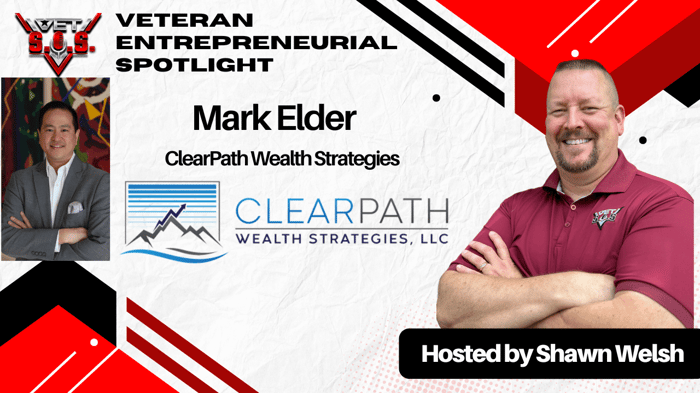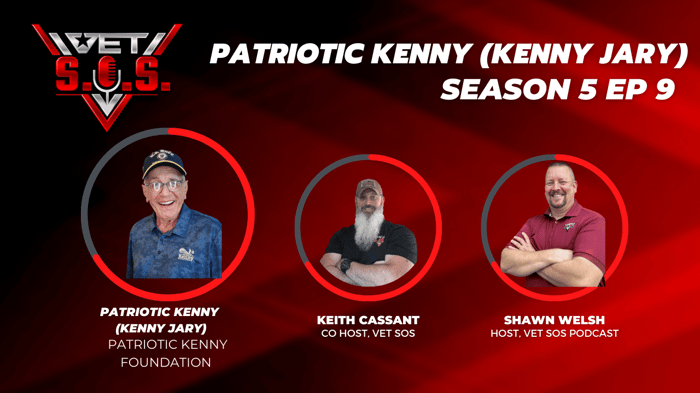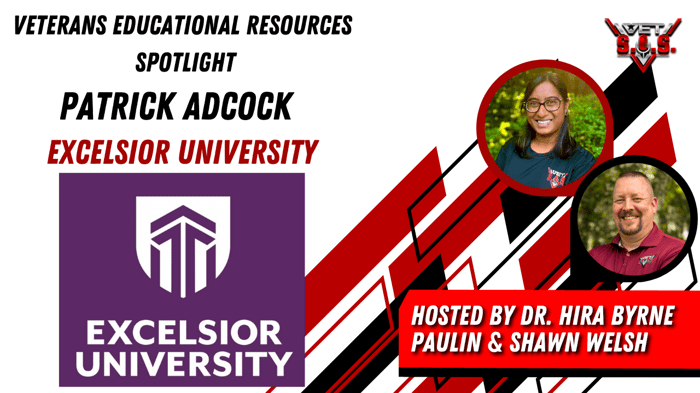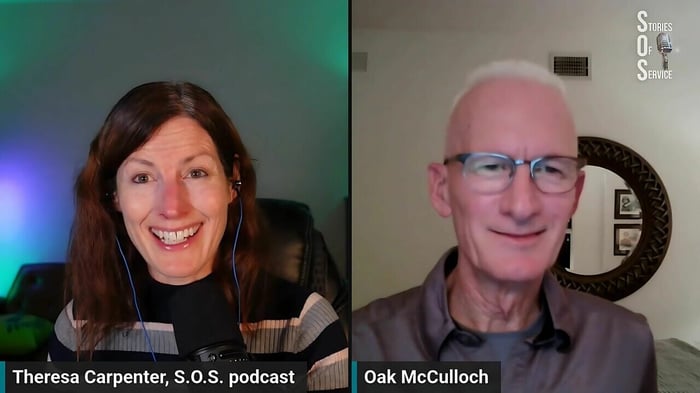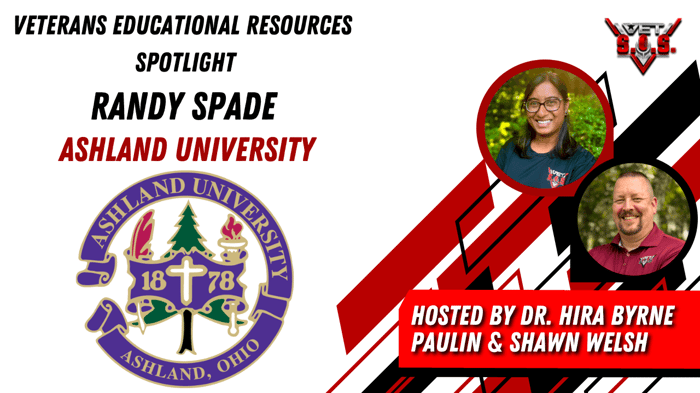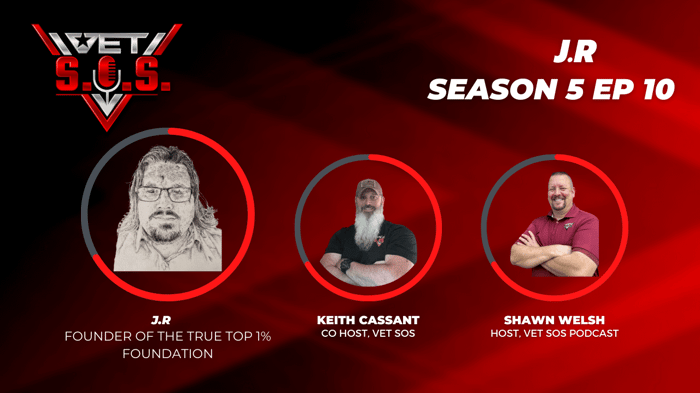Veteran Entrepreneur Spotlight: Mark Elder on Transition, Networking, and Financial Success
Transitioning from military service to civilian life is a significant milestone, and many veterans face the challenge of finding a new career path. Some choose to enter the corporate world, while others find their calling as a veteran entrepreneur—building businesses, creating opportunities, and making an impact.
In this episode of VET S.O.S. Veteran Entrepreneur Spotlight, we sat down with Mark Elder, a U.S. Air Force veteran and seasoned entrepreneur, who has spent over two decades helping professionals navigate career transitions, build financial security, and establish meaningful networks.
Mark is the founder and president of Clear Path Wealth Strategies, a company focused on helping individuals and families achieve financial stability. He is also an expert networker with extensive involvement in organizations like the Who Ya Know Career Network, a group dedicated to helping professionals make connections that lead to career growth. He is also the cofounder and original cohost of VET S.O.S. Podcast.
This blog post explores Mark’s journey from military service to becoming a veteran entrepreneur, the importance of networking, and the financial strategies he recommends for veterans transitioning to the business world.
From Military Service to Becoming a Veteran Entrepreneur
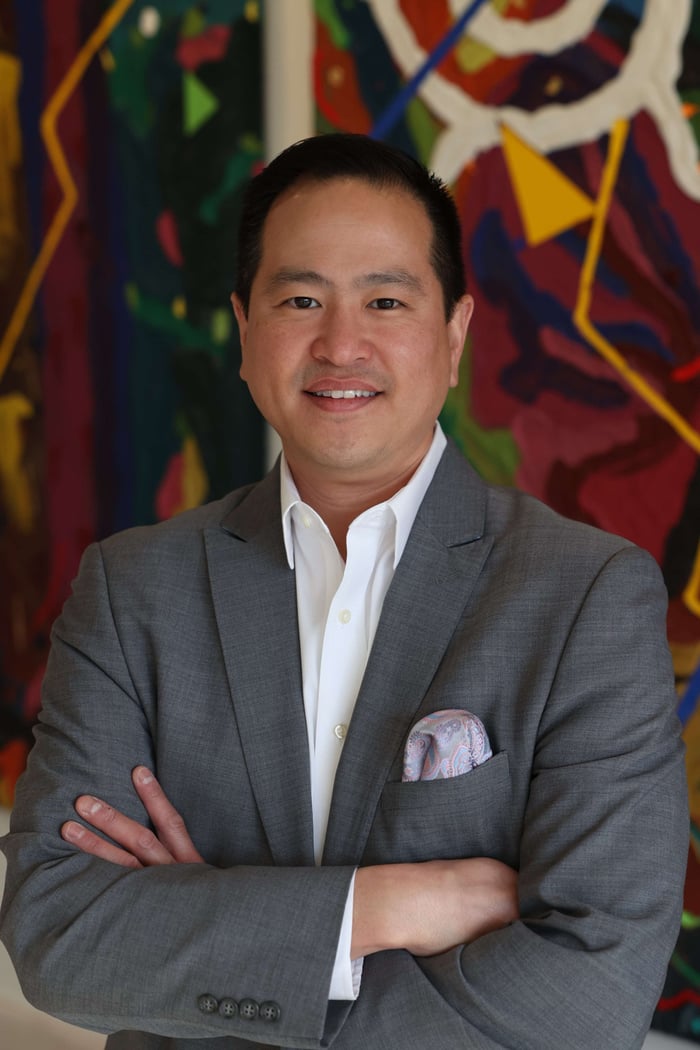 Mark Elder
Mark ElderMark Elder’s transition from military life to civilian success wasn’t without its challenges. Unlike many service members who make the military a lifelong career, Mark served four years in the U.S. Air Force before moving to the inactive reserve. Though his time in service was shorter than some, it had a profound impact on his mindset, work ethic, and approach to business.
The Military Mindset and Patriotism
Mark was born in Seoul, South Korea, and adopted as an infant. Growing up in Northern Illinois, he never imagined himself joining the military. His college years started without a clear direction, and after some friends enlisted in the Marines, Mark began considering his own path. A retired Air Force recruiter—who was also a close family friend—guided him toward the Air Force, and that’s where his journey began.
During his service, he developed a deep sense of patriotism, something he believes is missing in many parts of society today.
“I wasn’t even born here, but I served because I love this country,” Mark shared.
This love for country later fueled his passion for helping fellow veterans navigate career transitions and financial challenges after leaving the military.
The Transition Challenge
Like many veterans, Mark faced obstacles when adjusting to civilian life. He decided to return to college after his service but quickly realized that being four years older than most of his classmates changed his perspective. While traditional students were focused on socializing and discovering themselves, Mark had a mission-focused mentality, something instilled in him during his time in the military.
His transition to the corporate world wasn’t immediate. He needed to learn new skills, build networks, and understand the nuances of civilian employment. This experience later became the foundation for his work in helping veterans and professionals with career transitions.
Becoming a Veteran Entrepreneur
Mark’s entry into entrepreneurship wasn’t something he planned—it was something he grew into over time. He pursued a business degree, and early in his career, he discovered a natural talent for sales and marketing.
“I’ve always been a gregarious person,” Mark said. “I enjoy building relationships, having meaningful conversations, and connecting with people.”
While working in tech sales, he managed large territories, covering everything west of the Mississippi. Over time, as major tech giants like Microsoft and Google entered the space with free services, he realized he needed a career change.
A next-door neighbor, who was a financial services professional, continuously encouraged Mark to consider the finance industry. Eventually, Mark made the leap, transitioning into financial services, where he has spent the last 13 years building his business and helping others secure their financial future.
The Challenges and Rewards of Being a Veteran Entrepreneur
Every veteran entrepreneur faces both opportunities and difficulties when launching a business. Mark shared his perspective on the best and toughest aspects of entrepreneurship.
The Best Parts of Entrepreneurship
- Autonomy & Freedom – The ability to make decisions, set goals, and create a vision for the future.
- Unlimited Earning Potential – Unlike a traditional job where raises depend on performance reviews, entrepreneurs control their financial success.
- Fulfillment & Impact – Being able to help others while building something meaningful.
Mark explained that being an entrepreneur allows him to wake up each day with a sense of purpose and direction, knowing he is making a difference in people’s lives.
The Toughest Parts of Entrepreneurship
- Income Uncertainty – Unlike a corporate job with a steady paycheck, entrepreneurship requires constant effort to generate revenue.
- Stress & Responsibility – Business owners bear the responsibility for their success, which can be overwhelming.
- Daily Hustle – “You wake up unemployed every day,” Mark joked. “Every morning, you have to go out and get hired again.”
This mentality of constant drive is crucial for success as a veteran entrepreneur.
The Power of Networking for Veteran Entrepreneurs
One of the most valuable lessons Mark has learned is the importance of networking.
As a leader in the Who Ya Know Career Network, he helps professionals, including veterans, make connections that lead to career opportunities and business growth.
Why Networking is Essential for a Veteran Entrepreneur
✅ Opens Doors to Opportunities – Many jobs and business deals happen through relationships, not job boards.
✅ Provides Support & Guidance – Connecting with other entrepreneurs offers mentorship and knowledge sharing.
✅ Builds Business Growth – A strong network helps businesses gain referrals, clients, and partnerships.
Mark emphasized that veterans looking to become entrepreneurs need to intentionally build relationships that will support their success.
Financial Strategies for Veteran Entrepreneurs
As the founder of Clear Path Wealth Strategies, Mark helps individuals and families achieve financial stability. He highlighted some key financial strategies for veteran entrepreneurs:
- Budgeting & Cash Flow Management – Understand where your money is going and ensure you have enough to sustain your business.
- Smart Investing – Use financial planning to build long-term wealth.
- Leveraging Resources – Veterans have access to grants, loans, and business programs that can help fund their ventures.
He also emphasized that career transitions aren’t just professional changes—they’re financial changes, too. Having a solid financial foundation is critical for long-term success.
Final Thoughts: Advice for Veteran Entrepreneurs
Mark’s journey from military service to successful veteran entrepreneur proves that transitioning out of the military is just the beginning.
His top three pieces of advice for veterans considering entrepreneurship:
- Start networking early – Don’t wait until you’re job searching; start building connections now.
- Invest in financial education – Understanding money management will help you sustain and grow your business.
- Be adaptable – Your career may look different than expected, and that’s okay. Flexibility is key.
🚀 Want to connect with Mark Elder?
📍 LinkedIn: linkedin.com/in/markelder
📧 Email: [email protected]
🌐 Website: cpwstrategies.com
💡 "Don’t Drown in the Sea of Transition—Grab the VET S.O.S. Lifeline!"
